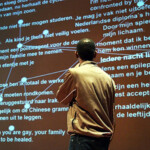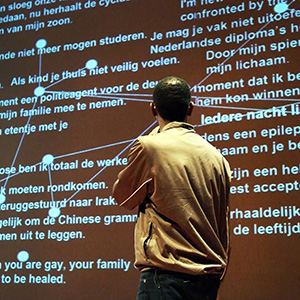Contemporary stages have often become places to exhibit one’s own injuries, traumas, or shame. Theater as a safer space – in the spirit of a concept that emerged in the USA in the 1960s in feminist and civil rights movements: A protected sphere in which one could communicate about one’s own experiences, goals, and strategies without already being confronted with permanent opposition from those who already dominate all discourses. But as important as protection against insult, injury, and re-traumatization is – doesn’t theater also have to be a space where there are no limits to freedom of expression, where everything can be discussed openly and radically? Perhaps, however, this oft-repeated juxtaposition is already following the wrong path.
In her work, the German-Ethiopian dramaturge and director Miriam Ibrahim repeatedly addresses issues of postcolonialism and racism, also questioning the institution of theater as a safe space. Hungarian-Dutch theatre maker Edit Kaldor’s Inventory of Powerlessness creates a brave space for people with a wide range of experiences, which at the same time needs to be able to protect the protagonists when encountering an audience. German Artist Ingo Niermann and the Army of Love propagate the idea of redistribution of love with collective rituals of care and tenderness for both for the known and the unknown. This episode of The Art of Assembly asks how a theatre can be safer and braver at the same time – behind the scenes as well as on stage.



